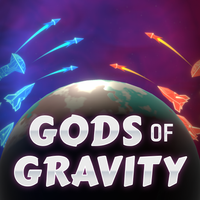The best new Quest 2 game of 2023 won't even cost you a dime
It's the multiplayer space strategy game I've been waiting for.
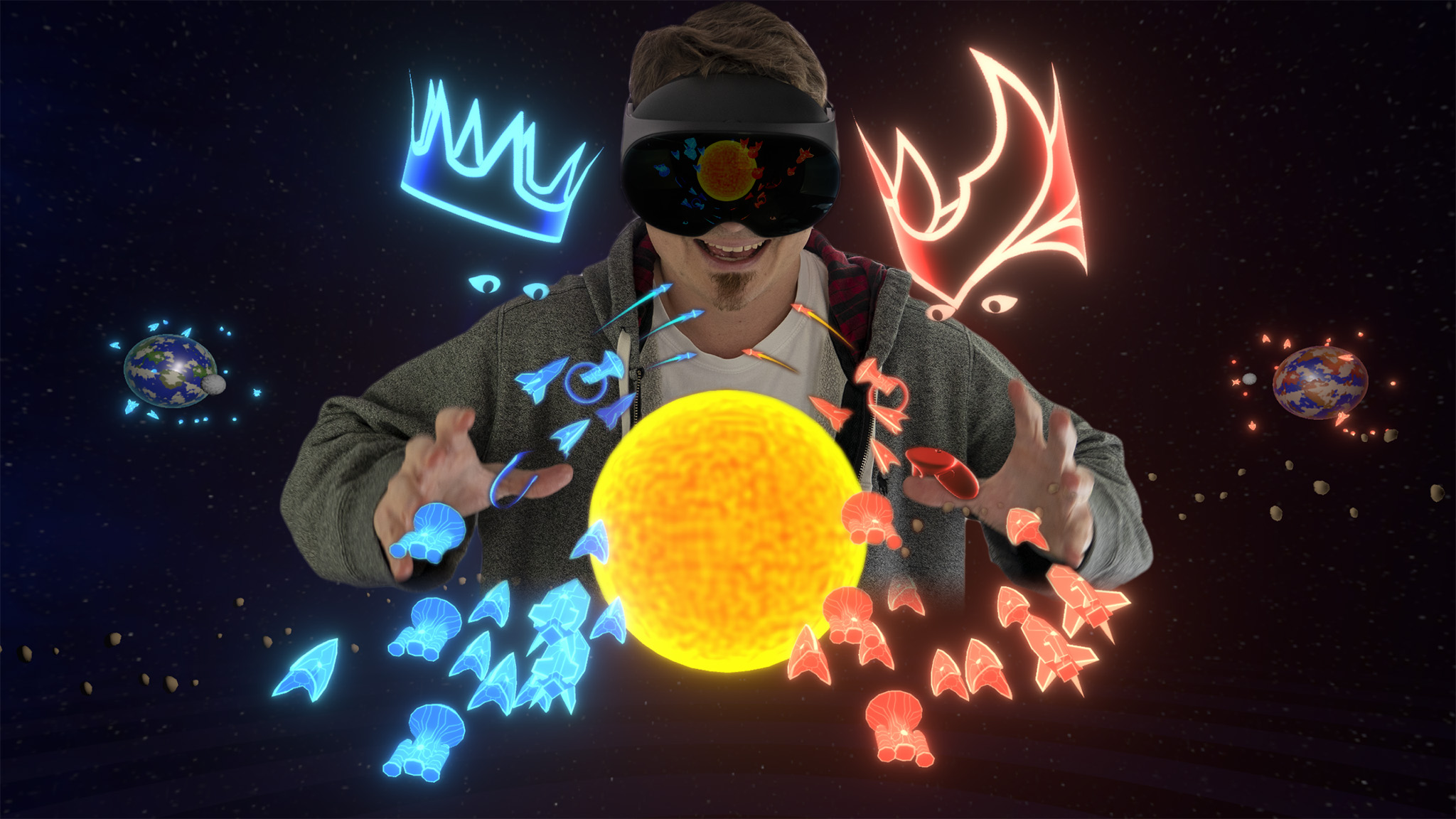
Back in middle school, I read the classic science fiction novel Ender's Game for the first time. Since then, I've been hoping to recreate the feeling I had the first time I read about command school in the novel. I had no idea a completely free VR game on the Quest 2 would be the game to finally do it.
This space strategy title will see you as a celestial god with the ultimate goal of commanding every planet in the galaxy. The developer describes it as a social, arcade strategy title, and, to me, it strikes the right balance between simplicity and clever, strategic mechanics. Just be aware that up to seven other human-controlled gods are also vying for the same goal, so your witty quips will only help you so much.
By all accounts, Gods of Gravity is my favorite new VR game in quite a while, and it probably helped that I went into it with no expectations. The game came out of nowhere and, like most VR games as of late, little fanfare was given to its release. At least developer and publisher, Trass Games has the excuse that this is the indie studio's first game, unlike the stealth terrible release of GRID Legends on the Oculus Quest 2 by EA Games last week.
The art of simplicity
Quest games, in particular, get a lot of flack for simplicity. The headset's mobile chipset all but guarantees that developers generally have to pick between physics simulations and more detailed visuals. Even many of the best Quest 2 games have a hard time riding this line.
But Gods of Gravity doesn't try to be more than it needs to be, and that's exactly where the charm lies for me. If anything, more visual detail would just be distracting here, and there's really no need for more advanced physics simulation.
But I digress. The real draw of the game isn't in the balance of visual simplicity and orbital physics modeling. It's the gameplay.
Gods of Gravity doesn't try to be more than it needs to be, and that's exactly where the charm lies for me.
Gods of Gravity's basic gameplay loop has you starting with control of a single planet. From there, you'll expand your galactic empire by sending ships out to control moons — which create a sphere of power from which your ships can operate — followed by capturing additional planets, asteroids, and even stars.
Be an expert in 5 minutes
Get the latest news from Android Central, your trusted companion in the world of Android
Be careful that you don't send your ships outside of this sphere of power as they'll be dead in the water the moment they leave. That's a hard lesson I had to learn in my first battle.
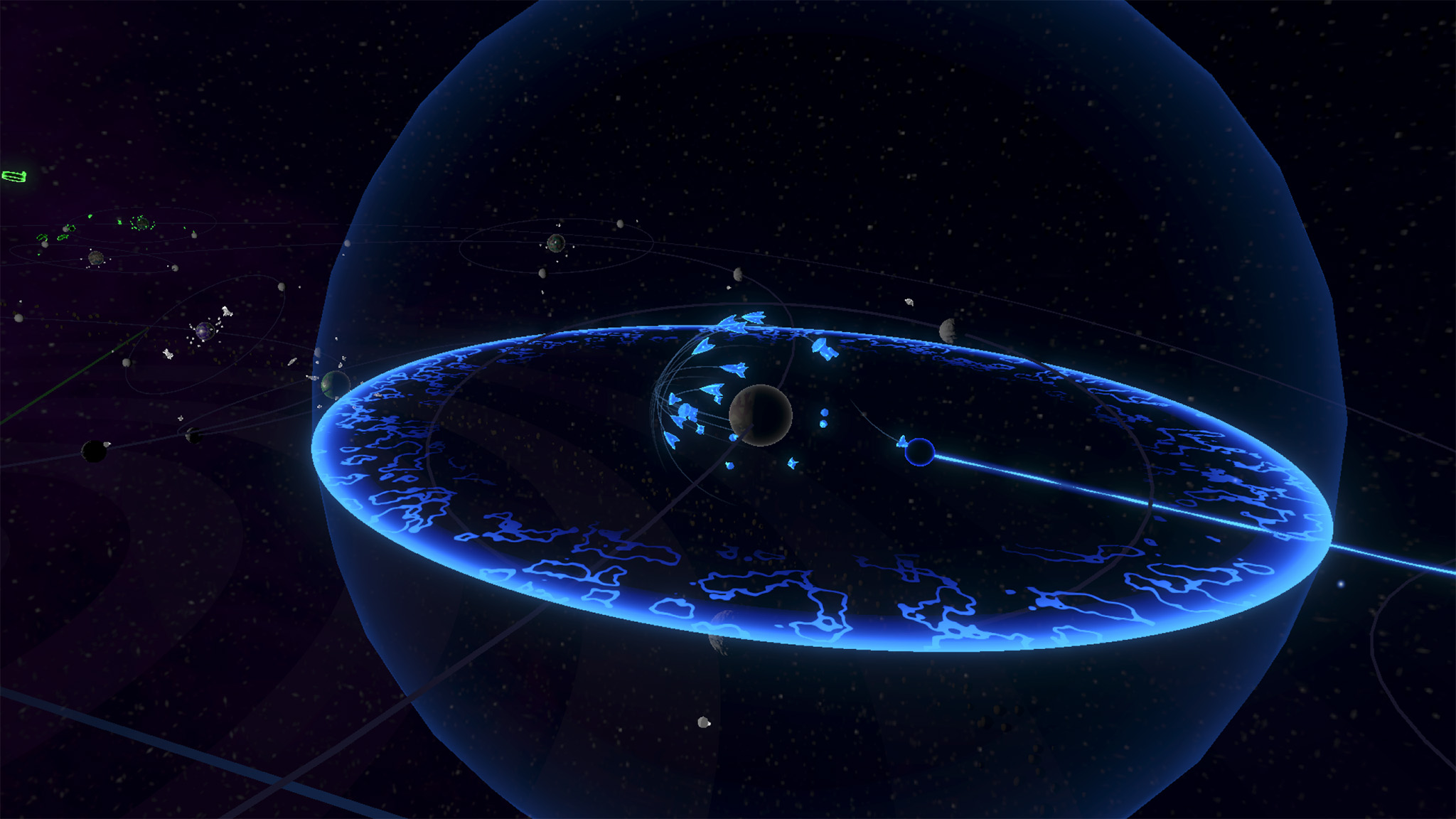
Each type of celestial body offers up a different reason to capture it. Different types of planets will manufacture different types of ships — each of which plays a key role in strategic combat — while other celestial bodies like stars might give your ships a temporary buff to enhance their combat abilities.
Gods of Gravity's basic gameplay loop has you starting with control of a single planet. From there, you'll expand your galactic empire.
Ships can be grabbed and flung across the map at will or more neatly teleported by opening a warp portal between two points. Warp points can only go so far, though, so you'll need to strategically position them throughout your occupied points in space for quick transport. You can also teleport yourself across the galaxy — or grab and pivot the whole map, Demeo-style — and a mini-map on your wrist makes it easy to keep track of where your fleet resides.
Each player chooses a god to embody, each of which grants them a special power that charges up as planets are conquered and enemies are vanquished. My personal favorite is the god who grants you reinforcements, adding 20-something ships to a planet instantly and significantly aiding in any siege or defense.
The joys of social VR
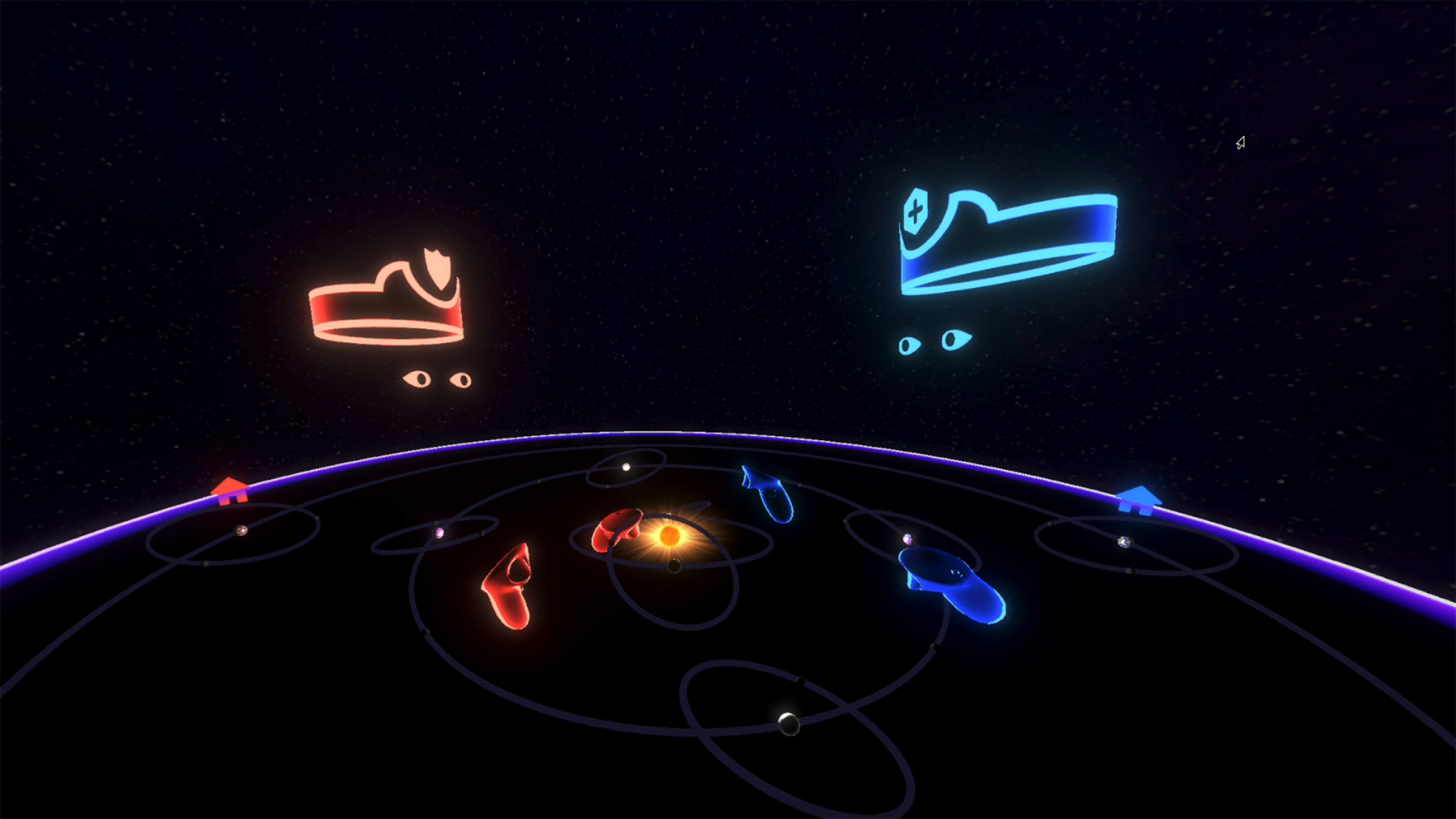
The first multiplayer match I played was against six other players, two of which were teamed up against the lot of us. The map we played consisted of four solar systems situated in a plus configuration with a black hole as the center point between all of them. Each player has the chance to capture several planets, accompanying moons, and orbiting asteroids before either making their way to an opponent's solar system or getting invaded.
Luckily for me, I appear to be pretty good at these types of strategy games. It must have been all those hours I spent playing Homeworld and Homeworld 2 on PC back in the day. It feels good when someone tells you you're good at something and, in this case, a few people told me such.
Many of Gods of Gravity's best aspects are shared with social VR games like Demeo and Gorilla Tag.
That's not intended as a brag. Rather, it's to set up the next portion of what makes this game special. Trass Games' logo is a gorilla which I think is quite perfect given that the most popular VR game of all time is Gorilla Tag. That game's success can largely be attributed to three things, all of which are present in Gods of Gravity.
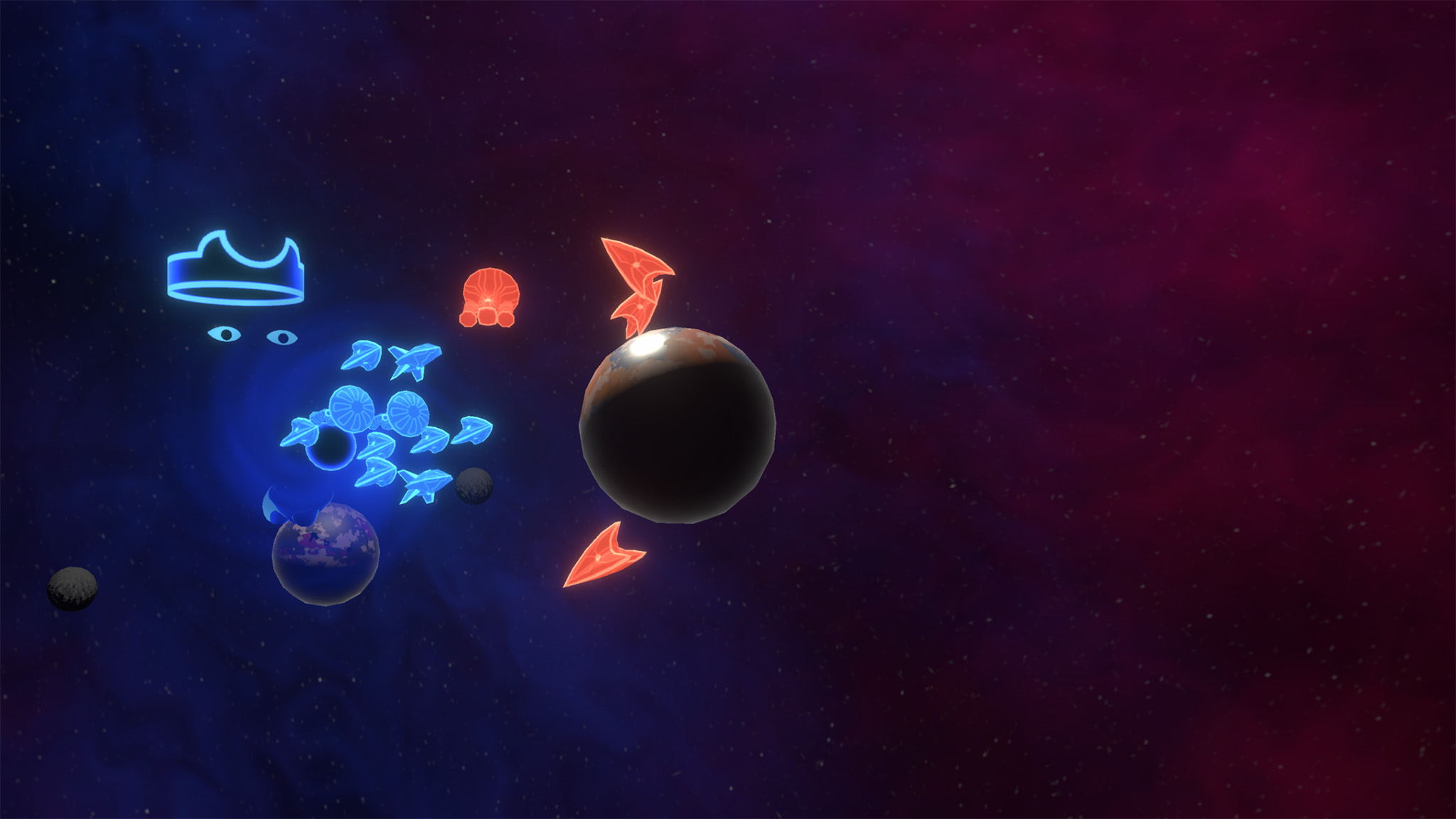
First off, it's free. That's a huge barrier of entry that can limit a player base. Second, is the social quotient. Gods of Gravity and Gorilla Tag don't sport the exact same design in this sense but they're similar in that they offer a simple social experience; by default, mics are open and you can hear all players in a game at any time.
Third, the gameplay is simple to pick up but difficult to master. Unless you're just really good at strategy games, of course.
In this way, the social portion of Gods of Gravity feels a lot like Demeo. Essentially, you're all floating in the same space, and, at times, it feels like you're hovering over the same table and playing a sort of strategy board game. This was my favorite part of the experience because it feels like you're physically playing a game with other people.
Third, the gameplay is simple to pick up but difficult to master. In Gorilla Tag's case, it's the physical movement of flinging yourself across and up surfaces without the use of your legs. In Gods of Gravity, the base mechanics only involve a few steps to complete, but it's the strategy that'll get you deeper into the game over time.
Lots of strategy titles exist but few offer such a satisfying feeling when outwitting opponents like Gods of Gravity does. It's also particularly helpful when you can so easily talk to everyone floating around the galaxy, too.
Loads of content
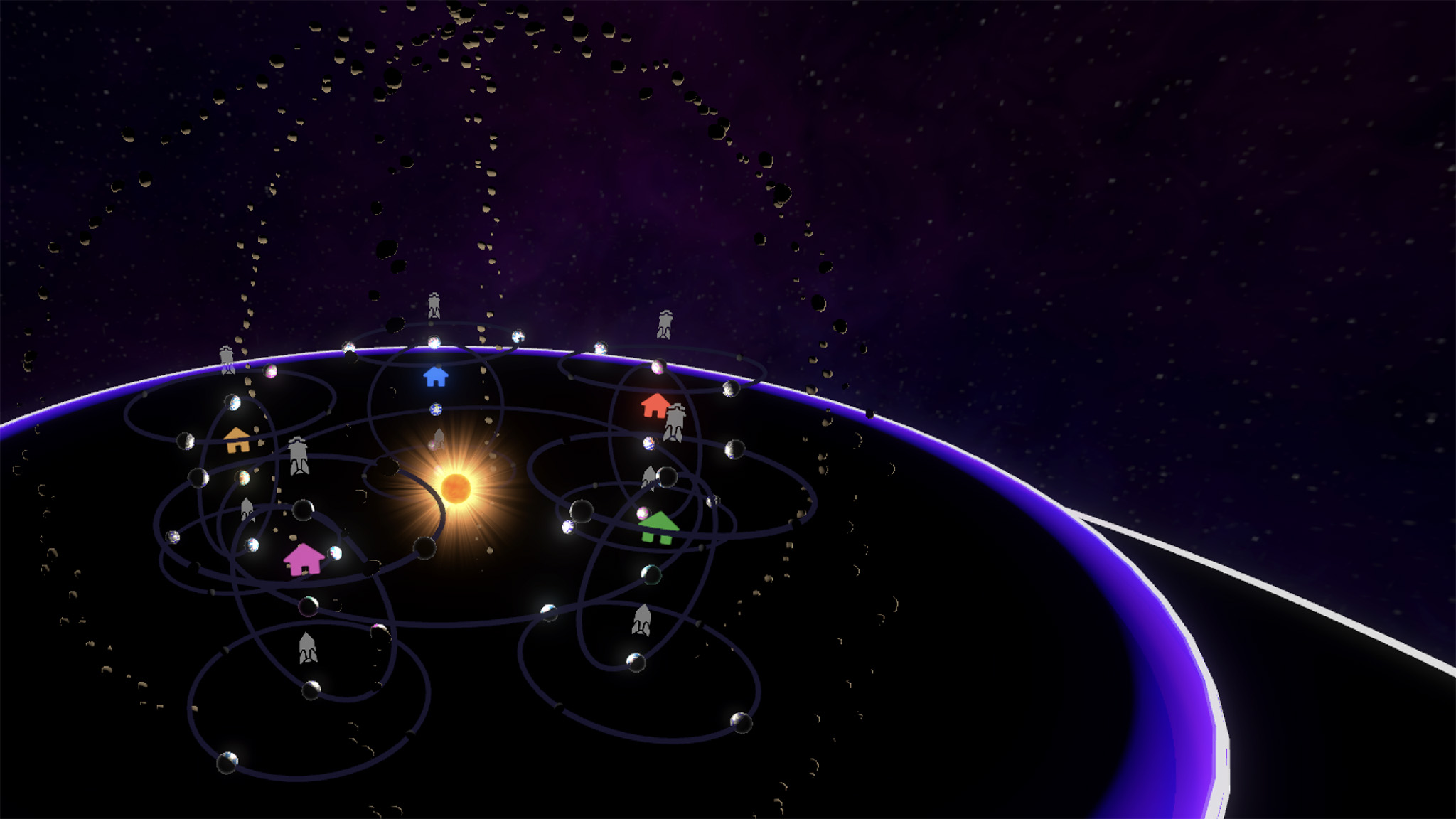
I also appreciate that Gods of Gravity gives players control over the social experience. It's easy to mute, kick, or block someone right from the wrist-mounted menu at any time, and players who create multiplayer rooms can opt to only allow paid players to join the lobby. While that sounds like arbitrary gatekeeping, it also keeps less serious players out of games.
Trass Games calls it the Star Pass and, at $15, it's a good value that unlocks all game modes, maps, campaign missions, cosmetics, and more. If you want to go further, the Creator Access Pass is another $15 and unlocks a level editor that allows players to create and share their own levels with the community which is always a huge plus for any multiplayer game.
There's even a new Destruction Update coming soon that adds a new god — which grants you a unique special power — as well as a new mode, new maps, a planet-killer weapon, and some new cosmetics to play around with.
Now, if you excuse me, I'm going to head back into VR and continue taking over the universe.
Gods of Gravity pits up to eight players against each other with the ultimate goal of conquering all available home worlds. Amass a hoard of ships to conquer planets, moons, and other celestial bodies to build your army and become the greatest in the galaxy!
Free to play at Meta Quest

